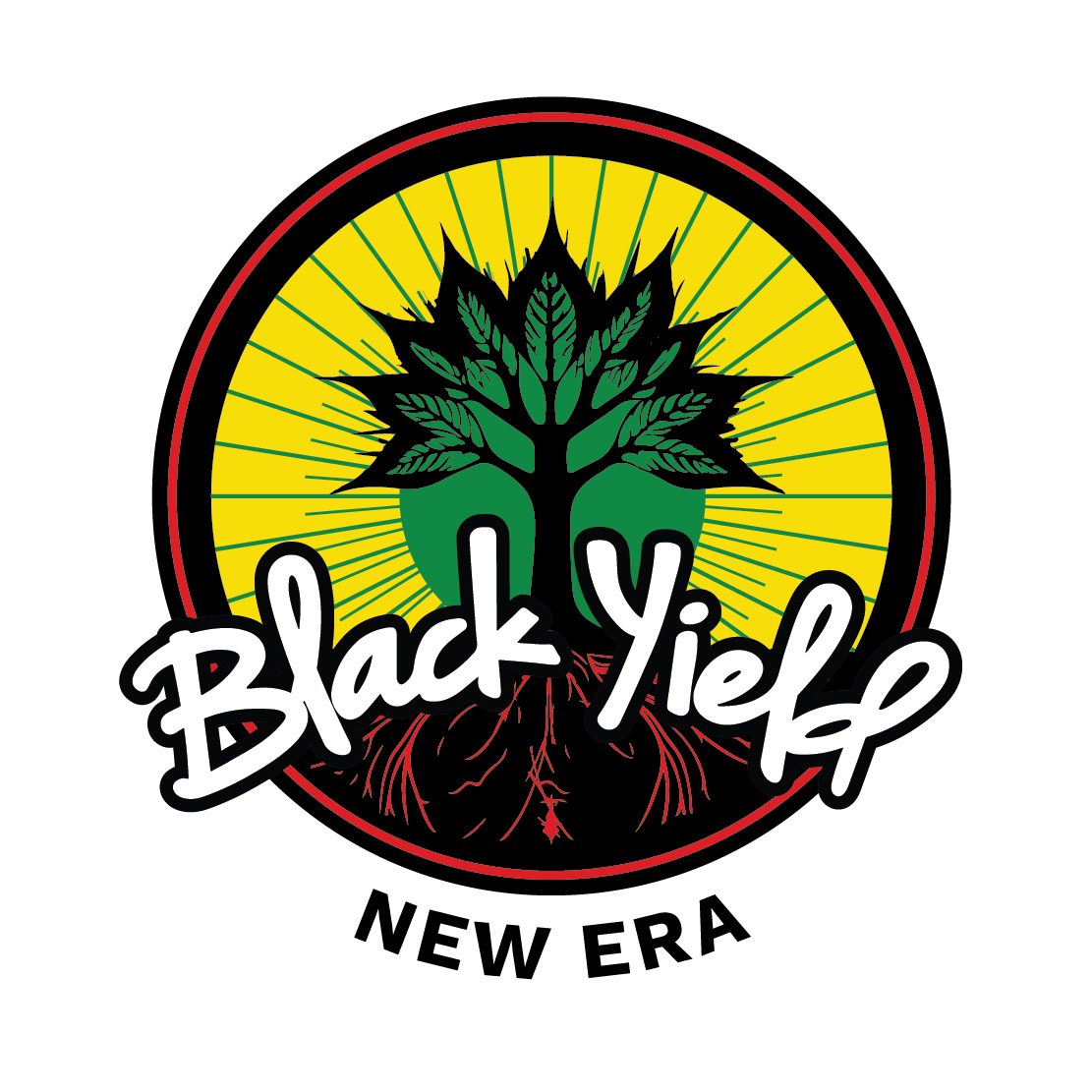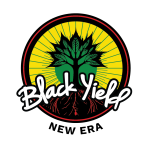The Need for Transformation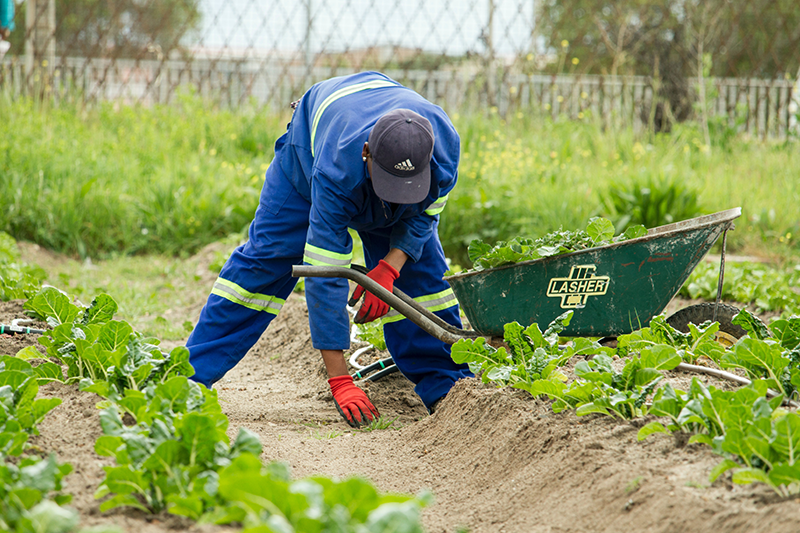
Baltimore City has a population of 620,961 people. 25% (or 155,240 people) of residents are food insecure, also identified as living in so-called food deserts by the 2015 Baltimore City’s Food Environment Report. People of African Descent constitute 63.8% (or 396,173 people) of populus, according to BNIA. Though Black peoples are the majority, 34% of all people of African descent in Baltimore are food insecure (equals to ~150,546). A further look into the numbers would show that 86.8% of all people who experience food insecurity (or who live in so-called food deserts) in Baltimore City are people of African descent. Only 13.4% (about 20,800) of people experiencing food insecurity are non-black, poor people. This trend is not new, as it has been documented since 2009. In fact, since the original full report in 2012, people of African descent’s food plight has increased by 9% (from 25% in 2012 to 34% of people living with insecurity). It is significant to note that this 9% increase has incurred, while the overall population increased 5% (from 20% in 2012 and 25% in 2015).
Moreover, there are merely 46 supermarkets serving the entire City of Baltimore; only 15 are full-service stores. The majority of poor and Afro-descendant people rely heavily on grocery stores and food pantries for their food consumption. The food provide through these sources are not only high in sugar and salt but they are low in nutrients. nutrient-rich, whole foods are almost impossible to find even with considerable efforts to increase access to food. Consequently, people of African descent are disallowed to live full lives due to diet-related illnesses. In fact a study centered on place-based (zipcodes) health analysis conducted by the Joint Center for Political and Economic Studies (2012), in comparing the poorest and wealthiest neighborhoods, scholars discovered that there are disparities in life expectancy as huge as 30 years. These numbers and this reality paints a horrifying picture of the Baltimore City Food System and food environments.
The above reality illustrates a narrative far too familiar in poor and Black communities around this country. Baltimore’s narrative describes what the National Black Food and Justice Alliance (2016) have coined as “food apartheid,” defined as, “the systematic destruction of Black self determination to control our food (including land, resource theft and discrimination), a hyper-saturation of destructive foods and predatory marketing, and a blatantly discriminatory corporate controlled food system that results in our communities suffering from some of the highest rates of heart disease and diabetes of all times.” The term “food desert,” produced by academics, does not lift up the intentional reality that faces Black peoples in this country and across the global context. The term does not lift up intentional structural barriers that politically, economically and socially leave Black people susceptible to disease (evidenced by the stark differences in life expectancy), insecurity and lack of ownership.
A major point to note is that Black people, although the numerical majority, own or control less land and resources necessary to shift the above trend. As a result, food retailers, producers, distributors, urban and rural farmers, researchers, public servants and other industries are primarily White professional, who own, operate and control the local food system. Black people in Baltimore can not compete nor control our own communities. Without strategic, targeted intervention by people most affected, which are Black peoples, it is impossible to address inequities in Baltimore’s food system.
Theory of Transformation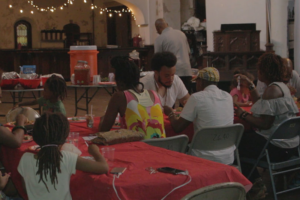
Black Yield Institute believes that the fundamental problem of the local food system is racism/white supremacy, as proven by empirical evidence in the illustration of context (above). Limited access to healthy, nutrient-rich foods, premature death/lower life expectancy, morbidity and co-morbidity, and lack of land tenure are all functions of the root problem. We also believe that any structural transformation happens when the work is led by people most affected by injustice and human rights violations.
Black Yield Institute believes that the fundamental problem of the local food system is racism/white supremacy, as proven by empirical evidence in the illustration of context (above). Limited access to healthy, nutrient-rich foods, premature death/lower life expectancy, morbidity and co-morbidity, and lack of land tenure are all functions of the root problem. We also believe that any structural transformation happens when the work is led by people most affected by injustice and human rights violations.
We have concluded that interventions implemented by public and private agencies are well-intentioned, power building through the pursuit of land and food sovereignty will achieve economic and racial equity in the food system. The current power structure can not secure the necessary changes to transform the current conditions of more than 150,500 Black people in Baltimore City. Self-determination is our guiding principle in creating sustainable and equitable food environments in Baltimore City. Therefore, Black people/people of African-descent must transform the conditions for our children, our families, ourselves and for future generations of African descendants.
Commitment to Transformation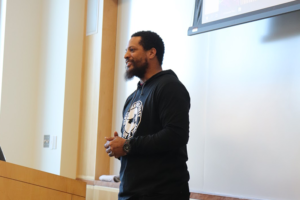
Transforming the current food system will require more than platitudes and rhetorical assertions. Land grants from elected officials, financial support from philanthropic and corporate partners and the organizing of African descendants and allies are all concerted efforts necessary to realize such a vision. Black Yield Institute is committed to shifting the political discourse and building a human rights movement to address food insecurity and disproportionate distribution of land and community wealth. We are committed to systemic and structural transformation and will utilize diverse approaches, including coalition building, social planning, community organizing, legislative advocacy and community-based participatory action research. Black Yield Institute is committed to planning, implementing and evaluating a strategic plan (blueprint) with other entities and independent people of African descent. We will also support existing and develop future programs, projects, ventures and organizations, in order to materialize a vision of Black Land and Food Sovereignty. Our areas of praxis (reflection and action) include, but not limited to: research/knowledge creation; urban agriculture; cooperative economic development, social planning and community organizing; and political education and community building.
